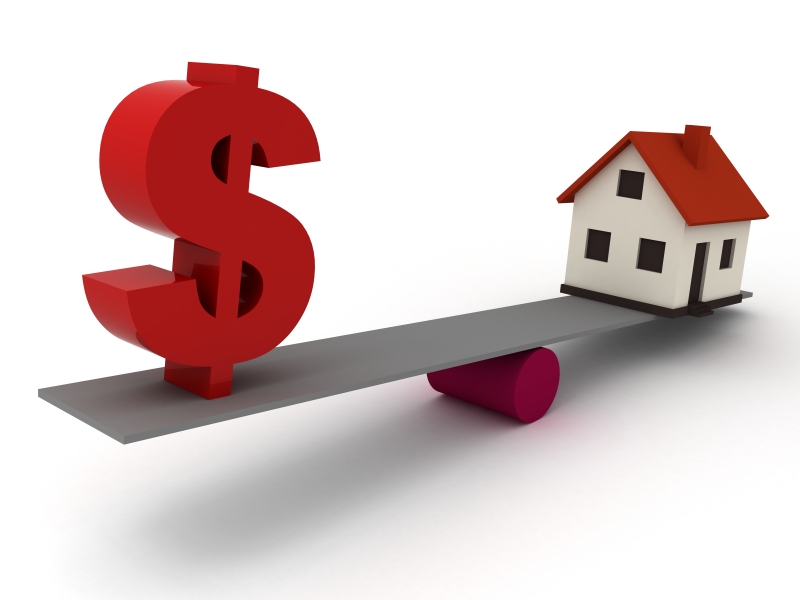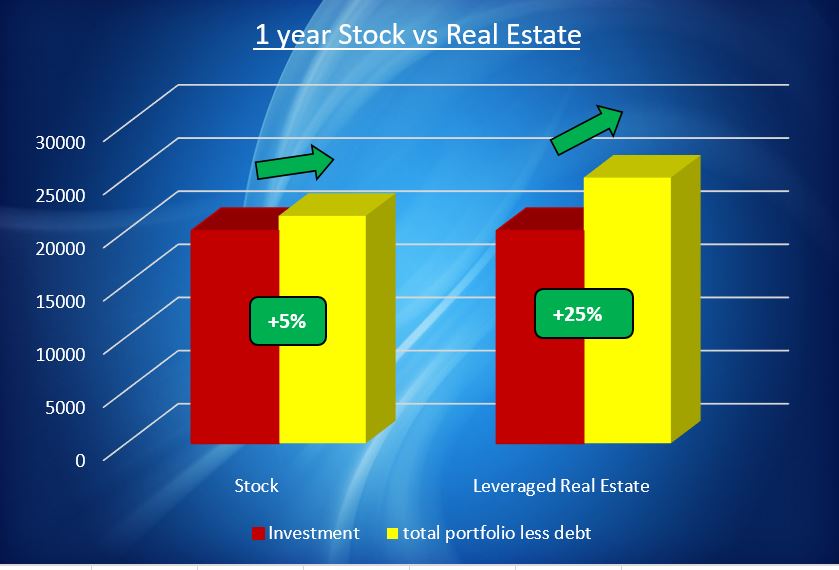 In our last post “How safe is your money under the mattress?” we talked about how saving is a losing venture, as well as how most of us have more money available to us than we think, simply by utilizing the built-up equity in our home.
In our last post “How safe is your money under the mattress?” we talked about how saving is a losing venture, as well as how most of us have more money available to us than we think, simply by utilizing the built-up equity in our home.
By having access to funds, the next logical question is what to do with those funds? You can do nothing, which is the same as saving; and we know that over the last 36 years the buying power of our money has eroded by roughly -67%. So just ignoring it, we are losing a great opportunity. The next option is to invest it. If we simply put it in the stock market, then we could expect to make about +7% yearly (which is generous in todays market). So, if you invest $20,000 in stocks, then you could essentially make $1,400 in a year. Not bad, however we all know how well the financial markets have been doing as well how volatile they can be.
- Leverage: The use of a small initial investment, credit, or borrowed funds to gain a very high return in relation to one’s investment.
Now what if we used leverage to invest that same $20,000? You could essentially control funds much greater than the funds you physically have on hand. Let’s say you use the same $20,000 and purchased real estate*. The bank would lend you up to $80,000 and you could purchase $100,000 in property (we understand it is unlikely to be able to buy a property for this amount, but we are just using this to make the math simple). Assuming the home goes up only +5% in the next year (which is about average for long term Canadian housing) then the investment would make $5,000. But the important thing here is that you only invested $20,000 not the full amount of the home, so your actual return on investment is +25% ($5000/$20000). The power of leverage gives you, the investor, the ability to achieve very high returns without requiring high growth rates in the market.
Both Real Estate and stocks are not “get rich quick schemes”. Both take time to generate and build long term wealth. Let’s assume our initial investment above remains for the life of the mortgage on the home (typically 25 years) and our rents only match our mortgage payments and expenses. If we hold onto stock and let it compound year over year at +7%, then after 25 years, we would have a portfolio value of $108,549, which is about +5.4x your investment. However, lets look at the same scenario with Real Estate. After 25 years, if the Canadian housing market continues to perform at historical rates of approximately +5% per year, then the property would be worth $338,635, This would be a return of almost 16x your initial investment. In fact, even if Real Estate only increased +1% yearly for the full 25 years, your return would be greater than a +7% yearly return in the stock market. For a closer look at why we believe the housing market may continue to increase in Canada, please read our blog post “Why Real Estate May Continue to Increase, and how can you Protect Yourself & Benefit”.
The scenario of investing in real estate described above is not used by many of us. In fact, only about 6% of our entire population invest in real estate beyond their principle residence (which is arguably not even an investment). However, the saying by Andrew Carnegie is still true today “90% of Millionaires became so through real estate”. Just look at the ultra wealthy and where they choose to invest, the majority of all of their holdings is held in real estate investments (Click here for article from The Globe & Mail).
Visit us at www.mkproperties.ca and our page MK Investment Group on facebook or LinkedIn to learn more about how we invest in real estate to profit in both an increasing or decreasing housing market. Or contact us if you would like to learn how we are providing double digit returns for our partner’s and clients year over year.
Happy Investing!
*Note: There are ways that you could use leverage to purchase stocks as well (buying on margin), however this involves much greater risk given any fluctuation in the stock investment could mean that the investor needs to invest more money just to carry the investment through a margin call (if prices drop). Not to mention, lenders are not as willing to provide funds secured against stocks, vs Real Estate. Simply go into your bank and ask for a loan secured against your stock portfolio vs. a loan against real estate you own.
Martin Kuev is a full time Real Estate Investor, Realtor and Investment Coach. He has worked for some of the most respected and well-known global organizations including Coca-Cola, Kraft and Nestle. With a multi-million-dollar real estate portfolio and team he built over the past decade, he left the corporate world to have the flexibility to spend time with his family, continue with his real estate investments and help others build their long-term wealth.


